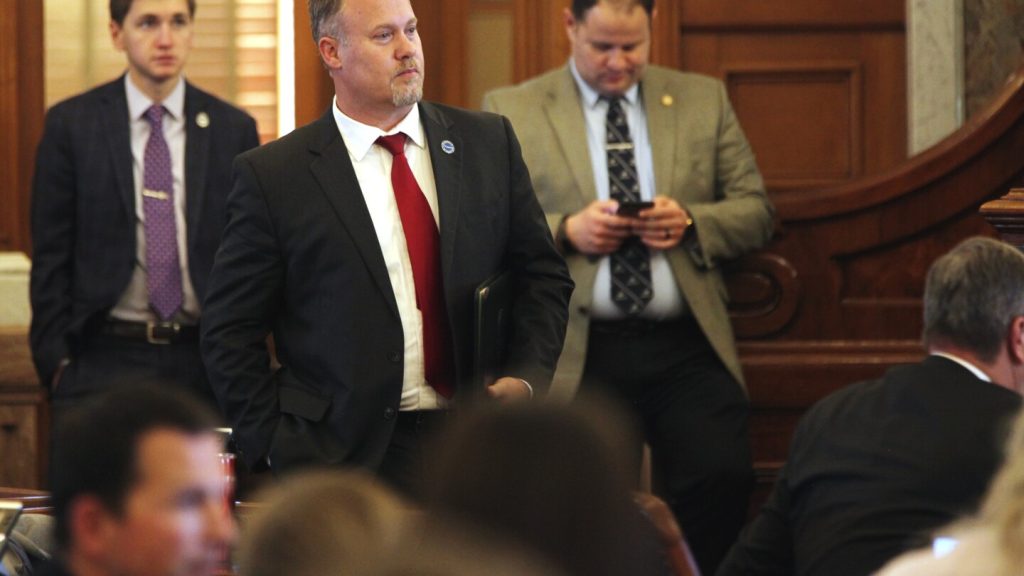In Kansas, a bipartisan group of lawmakers rejected a plan to cut taxes by $1.4 billion over the next three years. This plan, a compromise between Governor Laura Kelly and top Republicans, was seen as too small by some critics, particularly Republicans, and weighted towards wealthy taxpayers. Lawmakers from both parties believed it did not cut property taxes enough. The rejection of the plan came after the Senate had approved it 38-1, and the House decided to have negotiators draft a different plan instead of voting on it.
Senate President Ty Masterson stated that the Legislature would not consider another tax plan that week, as lawmakers were set to adjourn for a spring break. Another tax plan could be considered when they reconvene in April. Kansas has a budget surplus of over $4 billion for the end of June 2025, similar to Georgia, which recently passed tax cuts. However, major tax cuts were blocked in Kansas due to disagreements between Republican leaders and Governor Kelly over a GOP proposal for a single-rate income tax that she vetoed earlier in the year.
The rejection of the tax plan by the House was met with frustration and disappointment. House Speaker Dan Hawkins warned his colleagues that rejecting the plan would result in negative headlines. Despite efforts to persuade members to support the plan, it ultimately failed to pass. Governor Kelly had met with House Democrats to sell the plan, emphasizing it as a victory for the party. The plan included adjustments to the state’s personal income tax rate, elimination of income taxes on retirees’ Social Security benefits, and other tax reductions.
The property tax cuts in the plan were considered modest, with potential savings of around $140 annually for a home at the state’s median value. Concerns were raised about the overall impact of the plan, with some lawmakers seeing it as a temporary solution to larger issues. The rejection of the tax plan reflects ongoing disagreements and shifts in priorities within the Kansas Legislature. With upcoming elections, the debate over tax cuts and spending priorities is likely to continue in the state. Future discussions around tax reform will need to address concerns from both parties to find a more comprehensive solution.


